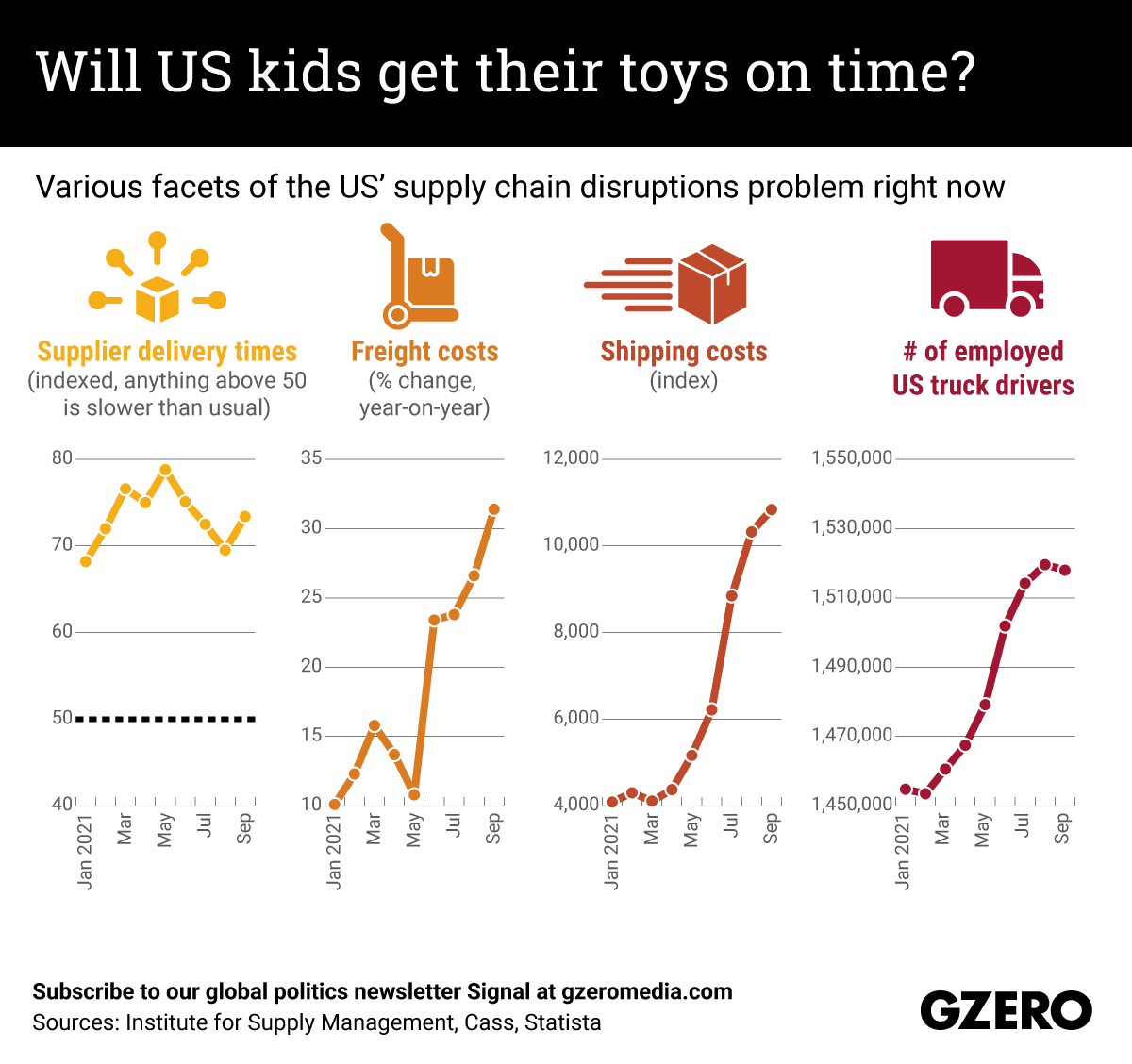The Graphic Truth: Will US kids get their toys on time?
October 20, 2021
Ari Winkleman
This year, American kids who've asked Santa for L.O.L. Surprise! dolls, Nerf blasters, or classic Legos may be disappointed. The delivery of these and other in-demand toys could be delayed due to pandemic-related supply chain disruptions that are still hitting US businesses and consumers hard. Container vessels loaded with precious cargo are waiting days to enter busy US ports, while within the country truck drivers are working flat out to meet soaring demand for goods of all kinds. Products are getting wildly expensive or arriving late. Here's a snapshot of the problem, showing longer delivery times, skyrocketing freight and shipping costs, and trucker employment.
